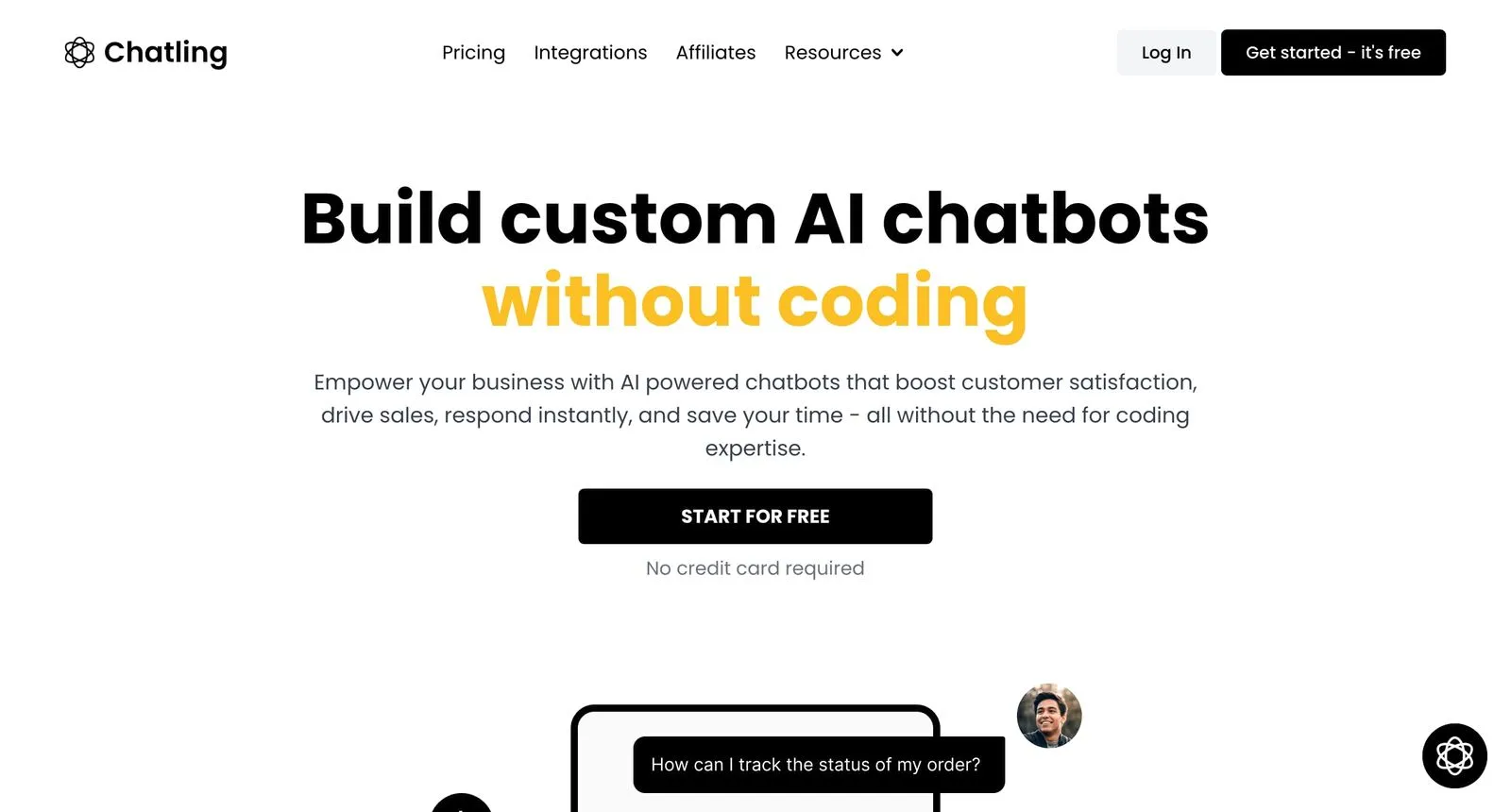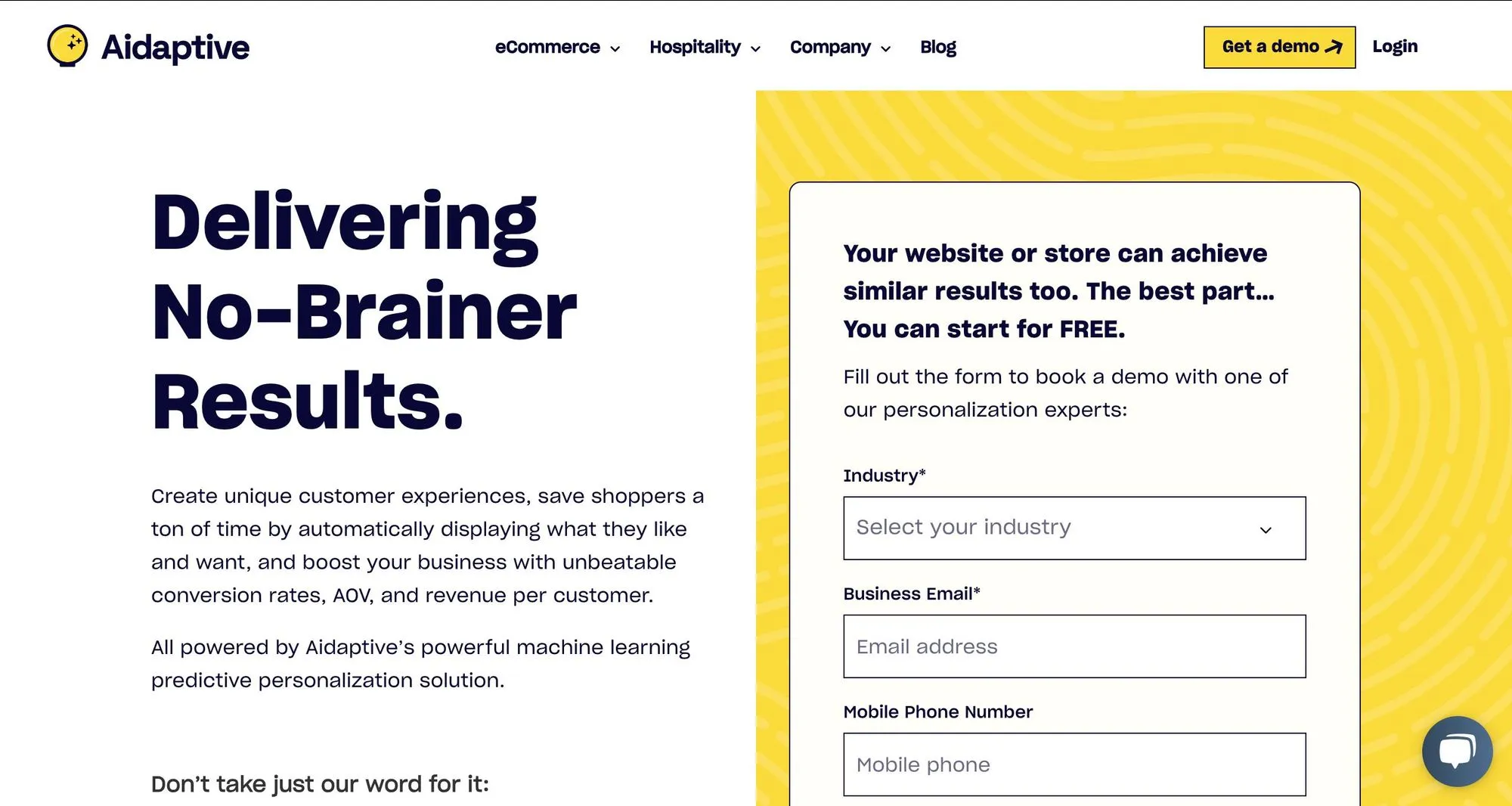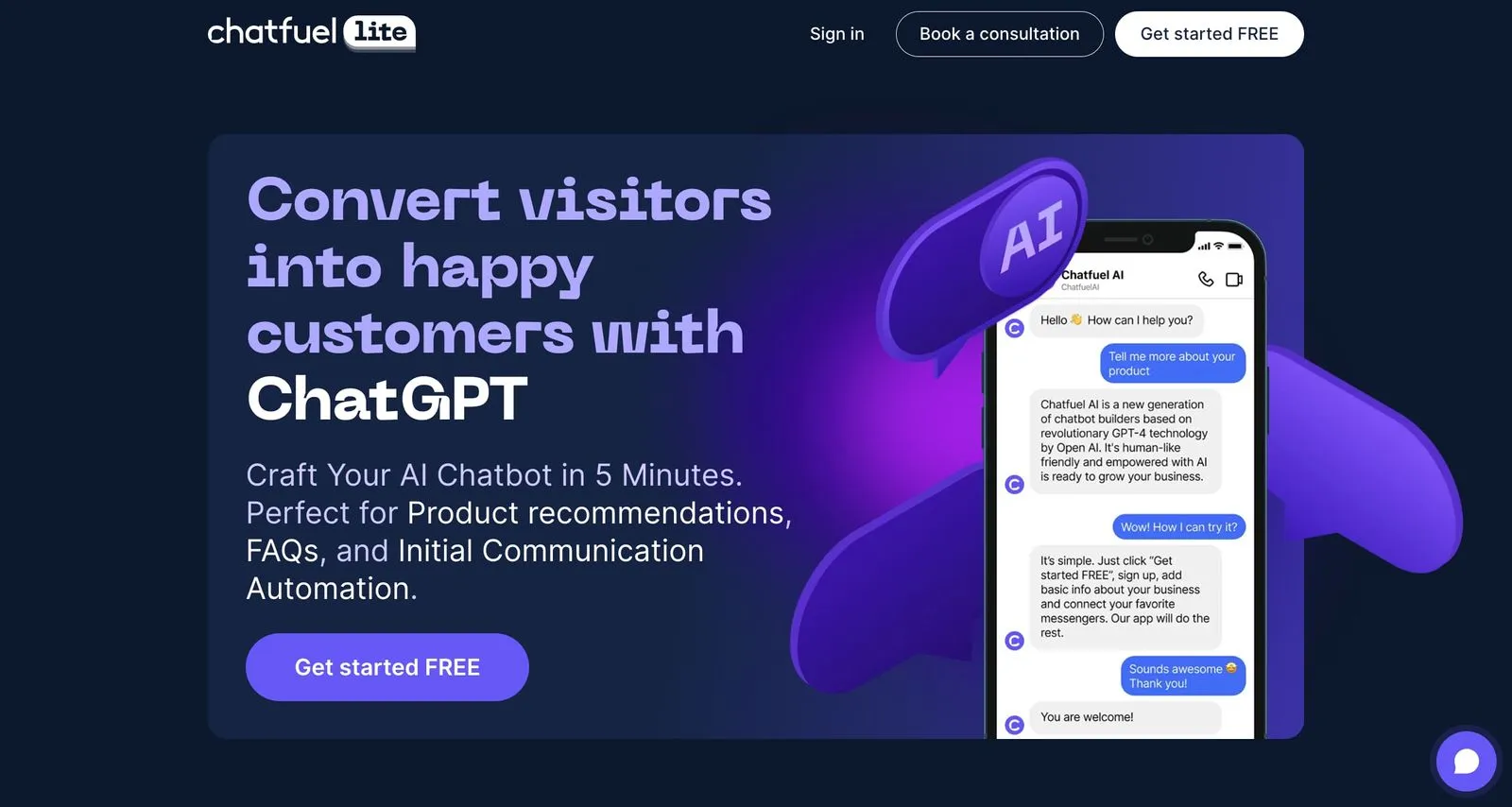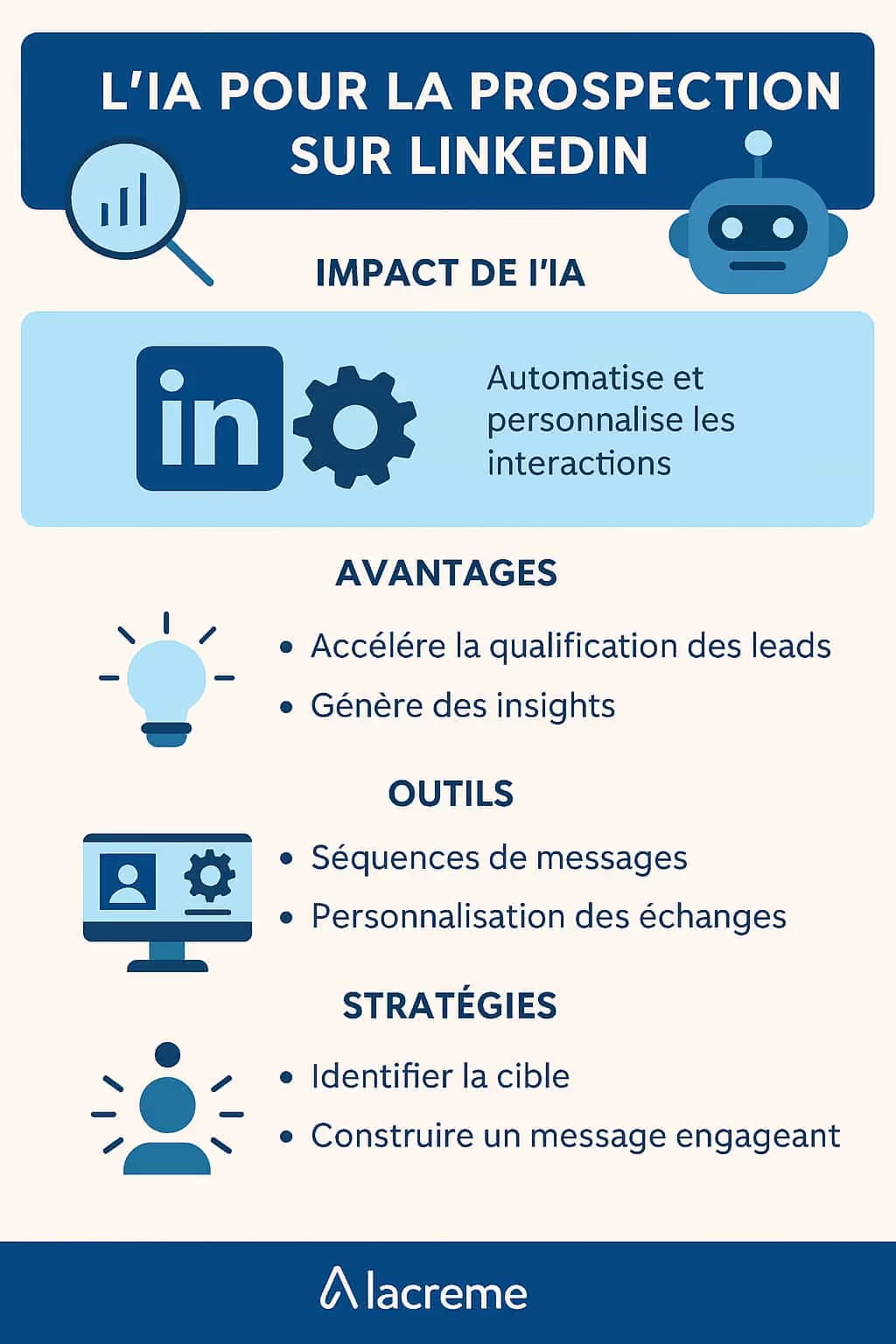THEartificial intelligence (AI) has revolutionized many fields, especially that of chatbots. In 2023, the use of chatbots equipped with AI became essential to improve the user experience on digital platforms. In this article, we explore the 10 best AI chatbots, with an emphasis on their capabilities, ease of integration, and how they can transform user interaction.
1. What is a chatbot?
An AI chatbot is much more than just an automatic response program. It is an application ofartificial intelligence designed to simulate conversations with human users. Thanks to technologies such as natural language processing (NLP) andmachine learning, these chatbots can understand requests in natural language and respond to them in a contextual and relevant manner. They are continuously learning from their interactions, allowing them to improve over time and provide increasingly accurate and personalized answers. These technological advances have transformed chatbots into virtual assistants capable of offering an exceptional user experience, facilitating interaction between businesses and their customers.
2. How do AI chatbots improve the user experience?
AI chatbots are revolutionizing the user experience by offering personalized and real-time interaction. They are able to understand and process complex requests, to provide instant answers and to assist users in their efforts. This ability to interact in a natural and intelligent way makes chatbots particularly useful for customer services, where they can quickly answer frequently asked questions, guide users through processes, and even provide personalized recommendations. In addition, their 24/7 availability ensures that help is always at hand, which greatly improves the overall user experience on digital platforms.
3. The Key Benefits of AI Chatbots for Businesses
The adoption of AI chatbots presents several key benefits for businesses. First, they offer ongoing support, allowing businesses to provide customer service without interruption. This increases customer satisfaction and reinforces brand loyalty. Second, AI chatbots can handle a large volume of requests simultaneously, reducing the workload on customer service teams and allowing significant savings in operational costs. Third, the data collected by chatbots during customer interactions provides valuable insights into customer preferences and behaviors, helping businesses refine marketing strategies and improve products or services.
4. ChatGPT: A Pioneering Example of an AI Chatbot
GPT chat, developed by OpenAI, is a remarkable example of the effectiveness of AI chatbots. Using an advanced language model, ChatGPT is able to understand and generate responses in natural language, offering an interaction that is similar to that of a human conversation. This capability allows ChatGPT to provide accurate and contextual answers, making it ideal for a variety of applications, from customer service to education. Its versatility and ability to learn and adapt to different contexts make it a valuable tool for companies looking to integrate AI chatbot solutions into their digital strategy.
5. Creating an AI Chatbot: Where to Start?
For create an AI chatbot effective, it is crucial to understand the specific needs of your business and your audience. The first step is to define the goals of the chatbot: is it to improve customer service, to facilitate business transactions, or to provide general information? Once these goals are established, it is essential to choosing the right platform and the right AI tools. Solutions like Chatling make it possible to create custom chatbots without requiring coding skills, relying on business-specific data to train the chatbot. These tools greatly simplify the process of creating and deploying AI chatbots, making this technology accessible even to small businesses.
6. Artificial Intelligence and Machine Learning: The Heart of Modern Chatbots
At the heart of modern chatbots isartificial intelligence And the Machine learning. These technologies allow chatbots to not only respond to user requests, but also to learn from these interactions to continuously improve their performance. Platforms like Aidaptive use machine learning to provide a personalized customer experience, by anticipating and responding to user preferences, which can dramatically increase conversion rates and average order value. The integration of these advanced technologies into chatbots allows for a more natural and relevant interaction, thus improving the user experience and commercial performance.
7. The Best AI Chatbots of 2024: Our Selection
In 2023, several AI chatbots stand out for their efficiency, their ability to learn and their ease of integration. Here is our selection of the best AI chatbot tools available on the market:

Chatling
Chatling is an AI chatbot builder that makes it easy to create virtual assistants without coding. Chatbots created with Chatling are trained with specific company data, offering personalized and effective responses. They are designed to increase customer satisfaction, reduce customer support workload, and operate independently 24/7. The platform offers flexible rates, adapted to different business sizes.

Aidaptive
Aidaptive offers a predictive personalization solution based onmachine learning. This technology makes it possible to improve the customer experience by automating the display of shoppers' preferences. With Aidaptive, businesses can see a significant increase in revenue and an improvement in average order value through personalized predictive recommendations.

Chatfuel AI
Chatfuel is designed specifically for online retailers and entrepreneurs using WhatsApp. It integrates advanced tools, such as ChatGPT, to improve customer engagement and optimize sales and support processes on WhatsApp. Chatfuel helps manage messages, recover abandoned carts, and increases customer interactions, which is essential for online retailers looking to maximize their presence on social media and messaging platforms. These tools represent the cutting edge of innovation in AI chatbots and offer a range of functionalities adapted to the varied needs of modern businesses.
8. AI Chatbots vs Traditional Chatbots: What's the Difference?
The main difference between AI chatbots and traditional chatbots is their ability to learn and adapt. While traditional chatbots follow predefined scripts and have limited ability to handle a variety of requests, AI chatbots usemachine learning and natural language processing to understand and respond in a more natural and personalized way. This adaptability makes AI chatbots ideal for complex applications, such as large-scale customer service management, where they can provide more accurate answers and continuously improve performance based on previous interactions.
9. The Future of AI Chatbots: Trends and Predictions
The future of AI chatbots is bright, with continued advancements in the fields of AI and machine learning. Chatbots are expected to become even more intuitive, able to understand and perform complex tasks, and provide even more rewarding user experiences. Future trends include the increased integration of voice and visual recognition, allowing chatbots to provide an even more personalized service. In addition, with the evolution of artificial emotional intelligence, chatbots will be able to better perceive and respond to user emotions, making interactions even more human.
10. How do you choose the best AI chatbot for your business?
Choosing the best AI chatbot for your business depends on several factors. It's important to consider the specific goals of your business, your target audience, and the technical integrations that are needed. Evaluate the chatbot's learning capabilities, how easy it is to customize, and how well it integrates with your existing systems. It's also a good idea to consider the support and services provided by the chatbot provider, as well as the total cost of the solution.
Key Points to Remember
- AI chatbots offer a personalized and interactive user experience.
- They are essential for improving customer service efficiency and reducing costs.
- ChatGPT is an example of an advanced and versatile AI chatbot.
- The choice of an AI chatbot should be based on the specific needs of the business and the goals of the user.
- The future of AI chatbots is marked by continuous improvements in intelligence and interactivity.






